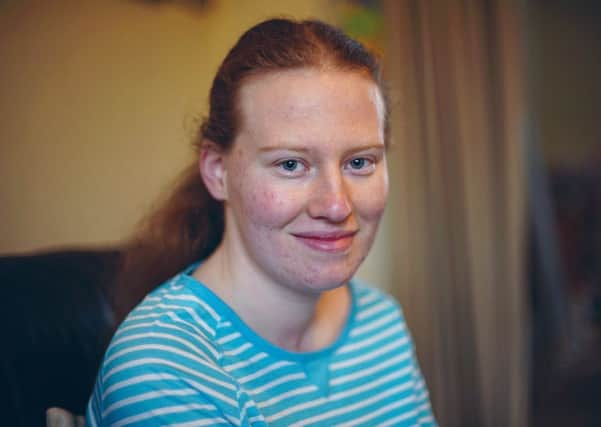Kate, 20, from Leeds tells how young people cope with brain tumour diagnosis


Play worker Kate Battye, 20, is among those whose experiences feature in the report out today from The Brain Tumour Charity. Her story highlights how people often struggle to understand what it is like for children and young people in this position.
She started having seizures when she was 13 and was diagnosed three years later with a low grade or non-cancerous brain tumour - sometimes referred to as benign.
Advertisement
Hide AdAdvertisement
Hide AdAlthough Kate takes medication to control her seizures she is frustrated by the fact that her tumour is being monitored but not treated. She feels other people don’t understand what life is like for her - and that they focus on the fact she ‘hasn’t got cancer.’
She said: “I took part in this report as it relates to my life and my experiences. I wanted to explain how I sometimes feel unimportant as I don’t have cancer; even though I still feel the terrible fear and side effects of living with a brain tumour.
“I hope that my contribution to this report will show young people with benign brain tumours that there are others who are fighting the same battles and who understand, when it feels like nobody else does.”
Losing My Place: The Reality of Childhood with a Brain Tumour is based on a survey of almost 300 young people and their parents.
Advertisement
Hide AdAdvertisement
Hide AdSarah Lindsell, chief executive of the charity, said: “Our report shows the devastating impact of childhood brain tumours – not only for those who are diagnosed but in many cases for the whole family.”
“We hope our findings will help to improve understanding of the effects of the disease as well as reducing the isolation felt by so many of those who shared their experiences with us.
“We will use the evidence in this report as we continue to press for the best possible care and services for all of those affected by a brain tumour.”
Every year, around 400 children from birth to the age of 14 are diagnosed with a brain or central nervous system tumour.
Advertisement
Hide AdAdvertisement
Hide AdThe disease claims more lives than any other childhood cancer and is the largest cause of preventable or treatable blindness in children.
Childhood brain tumour survivors are 10 times more likely to suffer long term disability than well children. This accounts for 20,000 additional disabled life years for all the children who are diagnosed each year
THE REPORT sheds light on the experiences of young people with brain tumours.
It shows that more than eight out of ten (84 per cent) said their brain tumour had made them feel lonely.
Advertisement
Hide AdAdvertisement
Hide AdSeven out of ten said they had difficulty doing things outside the house. More than a third who had symptoms said they had difficulty thinking and concentrating and three out of ten of those with symptoms reported changes to their personality.